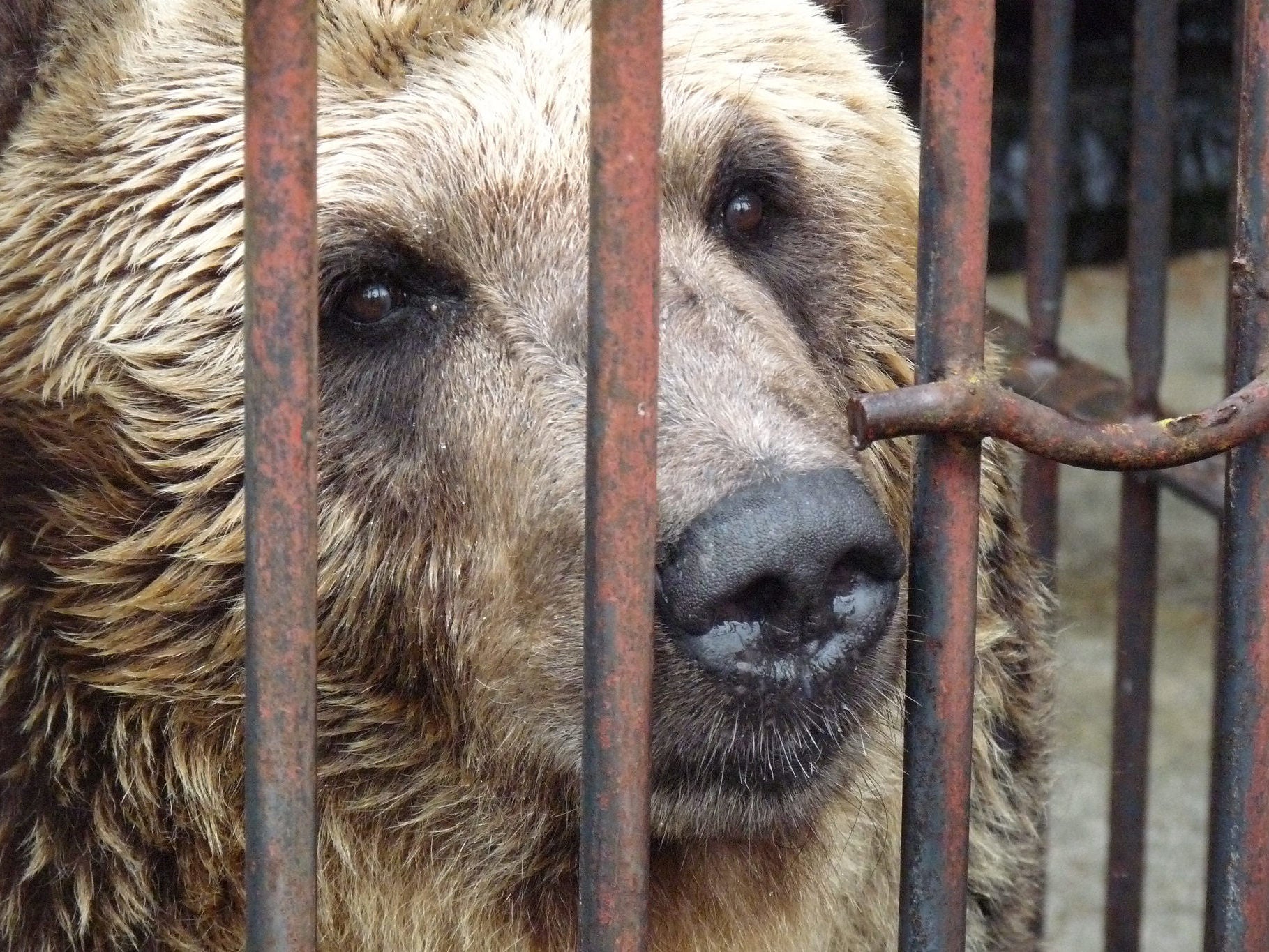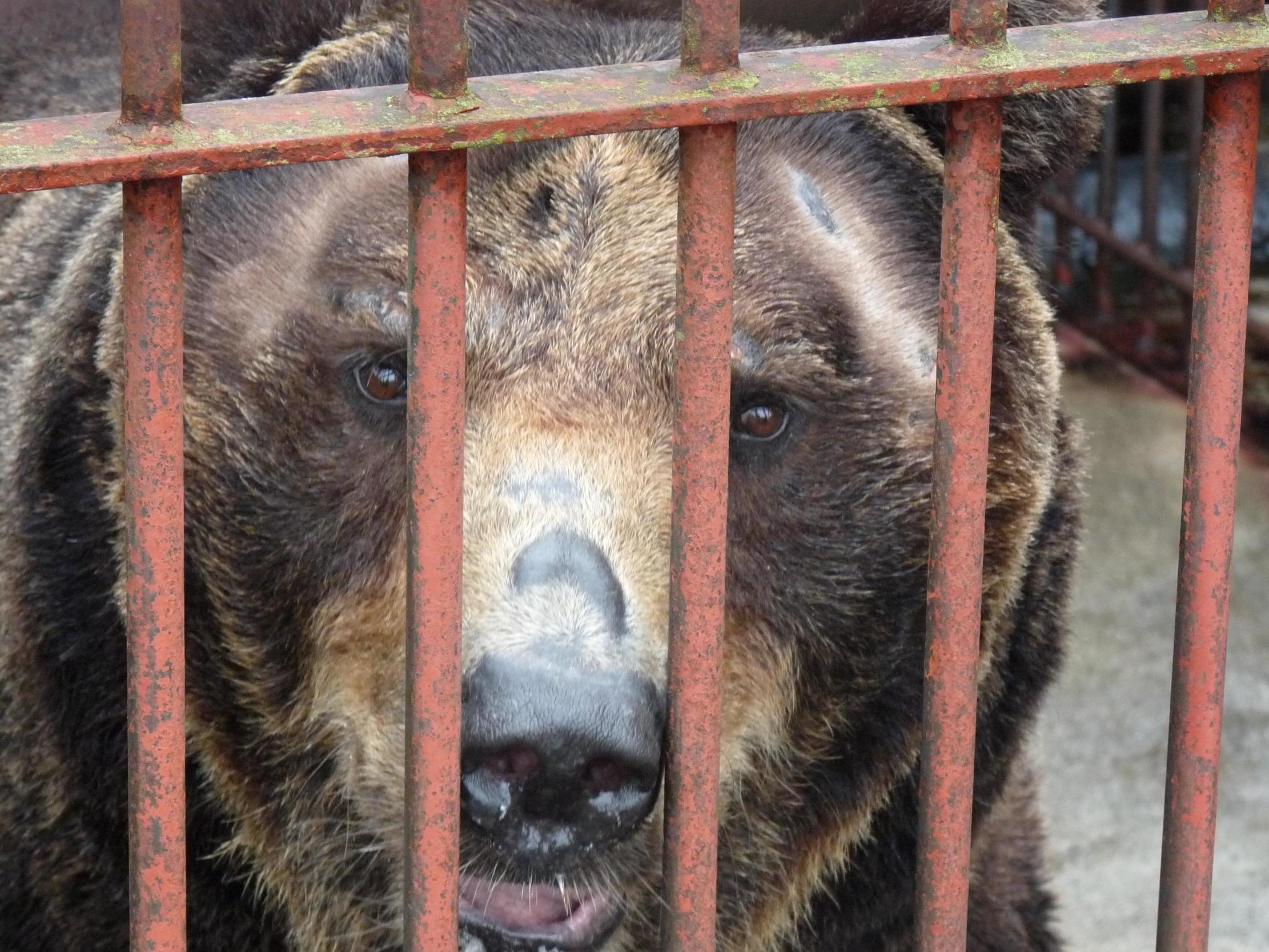Brown bears rescued from Japanese museum to be rehomed in British park
Yorkshire reserve will fly animals over from Hokkaido, where they are living in cages

Your support helps us to tell the story
From reproductive rights to climate change to Big Tech, The Independent is on the ground when the story is developing. Whether it's investigating the financials of Elon Musk's pro-Trump PAC or producing our latest documentary, 'The A Word', which shines a light on the American women fighting for reproductive rights, we know how important it is to parse out the facts from the messaging.
At such a critical moment in US history, we need reporters on the ground. Your donation allows us to keep sending journalists to speak to both sides of the story.
The Independent is trusted by Americans across the entire political spectrum. And unlike many other quality news outlets, we choose not to lock Americans out of our reporting and analysis with paywalls. We believe quality journalism should be available to everyone, paid for by those who can afford it.
Your support makes all the difference.A British wildlife park is giving a new home to four rare brown bears living behind bars in Japan.
The animals will be flown 5,400 miles to the Yorkshire Wildlife Park after outgrowing their cages at a Japanese museum.
The operation to move them in the coming weeks follows an appeal to wildlife rescuers worldwide for a new home that would cater for the bears’ needs for life.
Ussuri brown bears are on the IUCN Red List of Threatened Species - classed as “vulnerable” because they are hunted illegally, poached for their body parts and skins and their forest habitats are being destroyed.
They are extinct across parts of Asia, where they were once common, and there are thought to be only 10,000 left in Japan.
The four Ussuri brown bears (Ursus arctos lasiotus), called Riku, Kai, Hanako and Amu, are being taken from the Ainu Cultural Museum on Hokkaido, the northernmost of Japan’s islands.
“The Ainu museum bears came to our attention a few years ago and we’ve been working closely with the museum, Japanese animal-welfare NGOs and zoo experts since, to try and find a more suitable home for them,” said Georgina Groves of the Wild Welfare zoo-support organisation, which helped set up the move.
John Minion, head of the park at Branton, near Doncaster, said: “The museum does not have the experience or resources to look after the bears now, and wished to find them a new home, so animal-welfare organisations around the world teamed up to find a solution.”
Park chiefs have now put out a DIY SOS call to companies and tradespeople to help provide rocks, trees, platforms and other landscape features to recreate the bears’ natural environment.

They will also hold a volunteers’ day to help build the new features.
The reserve says it was chosen to take the bears because of its reputation for animal welfare and conservation of threatened species.
“We are fortunate we have the space, animal-management skills and experience to rehome these bears that will require specialist care, and we are looking forward to welcoming them. We are grateful to the Ainu Museum for releasing the bears to us here where we will be able to give them a secure and nurturing future,” said Mr Minion.
Park bosses will send vets to closely monitor the new arrivals during the journey from Japan to Yorkshire, and the four bears will be the first residents in a new rehabilitation centre at the park.
Ussuri bears weigh up to 550kg and can live for up to 35 years, eating a range of foods from nuts, seeds and plants to fish and smaller mammals.
Join our commenting forum
Join thought-provoking conversations, follow other Independent readers and see their replies
Comments